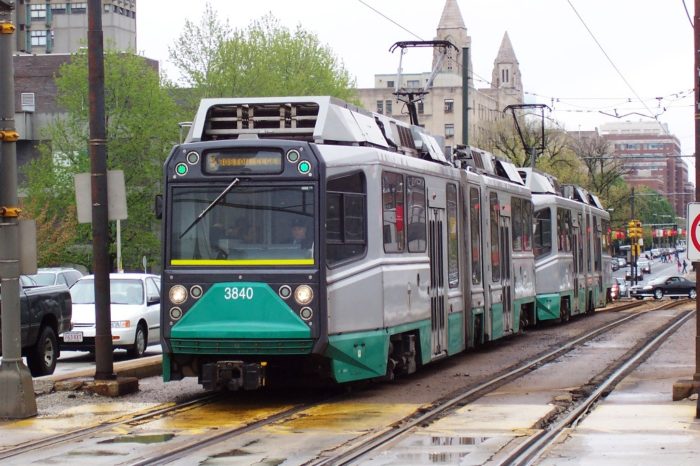Green Line Extension gets approval from Feds, but is this really the end of the headache?
The proposal to extend the MBTA’s Green Line from Lechmere into Somerville and Medford, which has been beset by obstacles at seemingly every turn, has finally taken an important step forward. Part of an environmental mitigation commitment connected to the Big Dig, the Green Line Extension (GLX) initiative appeared to have been in serious jeopardy after construction delays continued to occur and cost estimates continued to balloon out of control. Lawsuits and criticism regarding over-paid and possibly incompetent consultants threatened to torpedo the project before it could ever get going.
New President Donald Trump has made cost-cutting a priority, so it seemed safe to assume that federal funding would be hard to come by for a project that would seem to be the poster-child for mismanagement from the get-go, one that desperately needed federal funding in order to happen.
Those fears have turned out to be unfounded, for now.
After the federal funding request expanded from an initial figure of $1 billion to over $3 billion, project planners were forced to go back to the drawing board. They came back with a revised and condensed proposal, this time with a $2.3 billion price tag. In a hugely positive development for the project, approval was granted by the Federal Transit Administration this past month. The approval was accompanied by a Notice of Project Change Certificate issued by the Massachusetts Executive Office of Energy and Environmental Affairs. The GLX even appears on the Trump transition team’s list of 50 high priority infrastructure projects it wants to see completed. According to project officials, this federal approval sets them on a course to open up new Green Line stops by 2021.
Residents of the Somerville and Medford neighborhoods set to become part of the new service area will obviously be overjoyed at this development. If all goes as planned from here, they will finally be able to take advantage of the expanded transit service that has been promised to them for years. However, it is important to keep in mind just what government agency is in charge of overseeing this project: the Massachusetts Bay Transit Authority (MBTA).
While the MBTA has shown some signs of progress since the creation of the Fiscal Management Control Board (FMCB) in 2015, it is an organization that historically, has not managed its finances or major projects very effectively. It still suffers from a deferred maintenance backlog of over seven billion dollars (without considering the commuter rail), struggles mightily to keep its commuter line on schedule, and has a failing pension fund with an unfunded liability that has skyrocketed to over $1 billion just within the last ten years.
Pioneer Executive Director Jim Stergios recently submitted testimony to the MBTA’s FMCB with recommendations for how to improve overall performance as well as the Authority’s fiscal health. Grand initiatives like the GLX look great on paper, but are difficult to pull off in practice, especially when they are overseen by an agency already struggling to perform normally.
If everything goes as planned, the Green Line Extension will be a tremendous boon for the city of Boston, but is anyone betting the MBTA will be able to keep the project on time and on budget?
Michael Weiner is a senior at Northeastern University studying International Affairs. He began working at Pioneer Institute through the Northeastern Co-op program and has continued as a Research Assistant. Find Michael on Twitter at: @michaelgweiner



